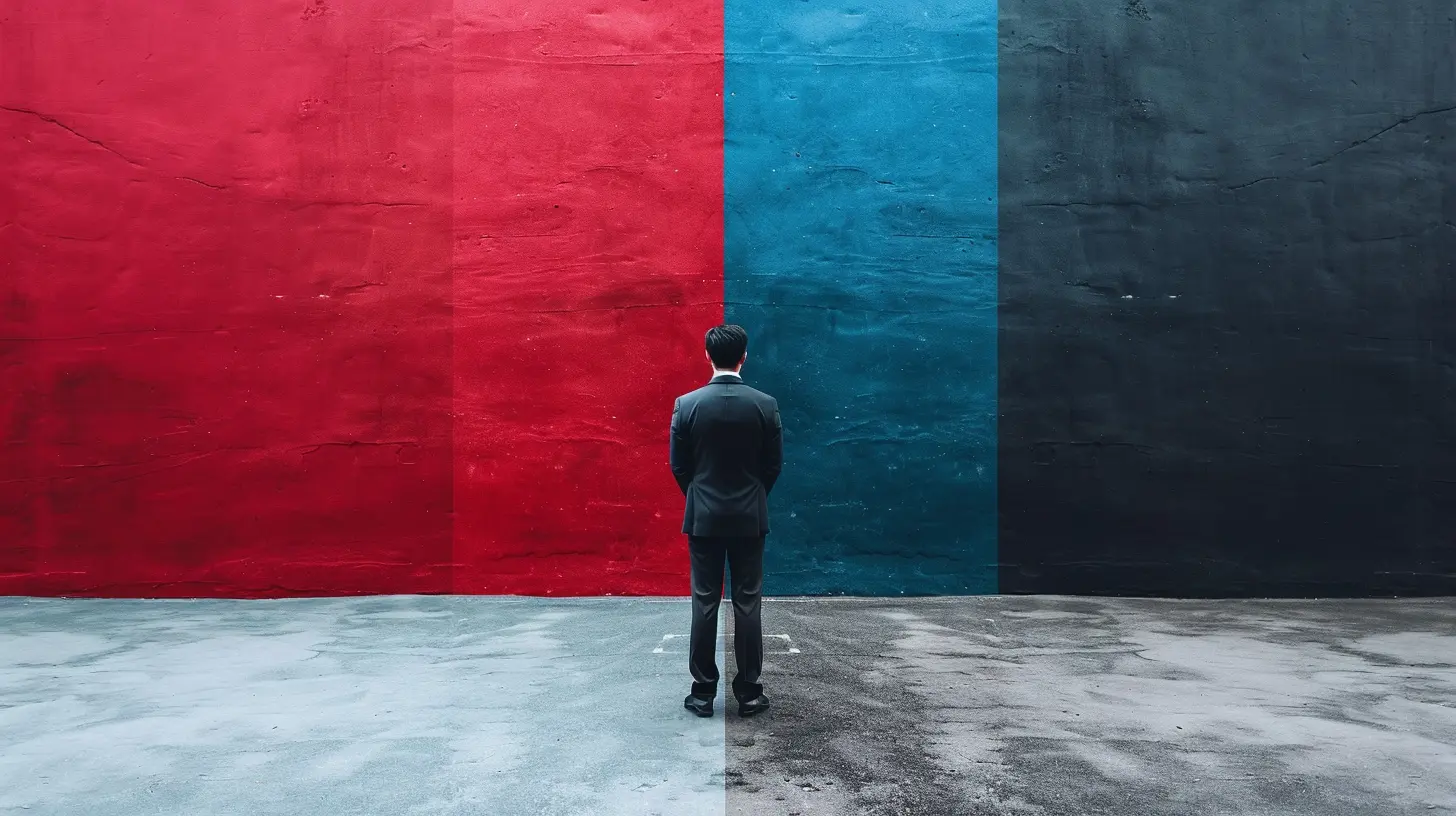Key Differences Between B2B and B2C Marketing You Must Know
10 August 2025
Marketing isn’t a one-size-fits-all game. Whether you're selling office software to companies or trendy sneakers to teenagers, the approach needs to be customized. That’s where the fundamental distinction between B2B (Business-to-Business) marketing and B2C (Business-to-Consumer) marketing comes into play.
Both tap into psychology, buying behavior, and digital strategies, but the execution is vastly different. If you’re in the business world—whether as an entrepreneur, marketer, or business owner—you need to understand these differences to craft the right approach.
So, what exactly sets these two apart? Let’s break it down.

1. Who Are You Selling To?
The most significant difference between B2B and B2C marketing is the audience.B2B: Targeting Businesses
B2B companies sell products or services to other businesses. These could be anything from industrial machinery, SaaS tools, or even bulk office supplies. Here, your buyer might be a procurement manager, an executive, or a whole purchasing committee.Because businesses make purchases logically (not emotionally), they focus on things like:
- Return on investment (ROI)
- Efficiency and productivity
- Scalability and long-term benefits
B2C: Targeting Individual Consumers
B2C marketing, on the other hand, is all about selling directly to individuals. Whether it’s clothing, gadgets, or online courses, the focus is on personal desires, emotions, and lifestyle preferences.Consumers buy based on:
- Brand perception
- Emotional connection
- Price and convenience
So while a B2B company might pitch "How This Software Reduces Operational Costs by 30%," a B2C brand might market with "Feel the Luxury of Effortless Performance!"

2. Buying Process: Short vs. Long
A crucial difference between B2B and B2C marketing is the length and complexity of the buying process.B2B: Longer Sales Cycles
B2B purchases don’t happen overnight. A company doesn’t just decide to switch accounting software instantly. There are demos, negotiations, contract approvals, and budget discussions involved—but why?Because business purchases:
- Require multiple decision-makers
- Need a high level of research
- Have long-term financial implications
It isn't a casual purchase; it’s an investment.
B2C: Quick and Impulsive Decisions
Think about how people buy a new phone or a pair of shoes. They see an ad, read a few reviews, check the price, and boom—purchase completed.That’s because:
- Consumers make emotional decisions
- The risk is relatively low
- No boardroom approval is required
This means B2C marketing should focus on capturing attention quickly, using persuasive storytelling and strong visuals.

3. Marketing Strategies: Logical vs. Emotional
The messaging in B2B marketing is more detailed, technical, and logical, while B2C marketing is designed to hit emotions and personal desires.B2B Strategy: Educational & Value-Driven
B2B audiences don’t care much about flashy slogans. They want data, case studies, and expertise. That’s why content marketing and SEO are essential for B2B brands.- Whitepapers & Case Studies: Demonstrate results and ROI
- Webinars & Demos: Show how your product solves business problems
- LinkedIn & Email Marketing: Engage with decision-makers professionally
B2B marketers focus on nurturing relationships rather than just selling.
B2C Strategy: Engaging & Emotion-Driven
In the B2C world, marketers need to make an instant emotional connection.- Social Media Ads: Catchy, visually appealing, and relatable
- Influencer Marketing: Builds trust through recommendations
- Email Campaigns & Discounts: Drive urgency (e.g., “Limited Time Offer!”)
In short, B2C marketing means selling a feeling, not just a product.

4. Lead Generation vs. Brand Loyalty
The way businesses and consumers interact with brands post-purchase also differs significantly.B2B: Lead Generation & Relationship Building
B2B marketing isn’t about mass advertising—it’s about developing long-term professional relationships. Customer retention is key.Marketers focus on:
- Lead nurturing through emails & CRM tools
- Account-based marketing (ABM) strategies
- Ongoing support & customer success management
Because B2B clients bring repeat business, maintaining trust is crucial.
B2C: Customer Engagement & Brand Loyalty
For B2C companies, it’s all about creating a strong brand relationship. Since consumers have unlimited alternatives, customer loyalty can make or break a business.Strategies include:
- Loyalty programs & rewards (e.g., Starbucks Rewards)
- Personalized emails & product recommendations
- Social media engagement & community building
B2C brands excel when they make customers feel valued and connected.
5. Pricing Models: Complex vs. Transparent
Another huge distinction? How pricing is structured in both models.B2B: Negotiated & Custom Pricing
B2B pricing isn’t set in stone. Since different companies have different needs, custom pricing and contracts are common. Businesses might get:- Volume-based discounts
- Subscription-based pricing for SaaS tools
- Custom quotes for enterprise solutions
B2C: Fixed & Transparent Pricing
Consumers expect clear, upfront pricing. Whether you're buying a coffee or a new gaming console, the price is usually fixed and non-negotiable.However, discounts, seasonal offers, and special deals often drive sales in B2C marketing.
6. Advertising Channels: Where Do They Market?
B2B and B2C companies advertise on different platforms because they target different audiences.B2B: Professional & Industry-Specific Channels
- LinkedIn Ads – Perfect for reaching decision-makers- Google Ads (Search & Display) – Capturing high-intent buyers
- Industry Publications & Trade Shows – Establishing authority
B2C: Mass Appeal & Social Media-Focused
- Facebook & Instagram Ads – Visually engaging content works best- TikTok & Influencer Marketing – Trends and personalities influence buyers
- YouTube & TV Ads – Great for storytelling through video
B2B is strategic and targeted, while B2C focuses on mass reach and virality.
7. Communication Style: Formal vs. Casual
Naturally, the way you talk to a business executive differs from how you'd market to a teenager.B2B: Professional & Fact-Based
- Uses industry jargon and technical language- Focuses on logic, data, and long-term solutions
- Prefers email, LinkedIn, and webinars for communication
B2C: Casual & Emotionally Engaging
- Uses simple, fun, and persuasive language- Appeals to personal emotions and desires
- Relies on social media, videos, and customer testimonials
B2C marketing often feels like you're chatting with a friend, while B2B marketing is more like a business meeting.
Final Thoughts: Which One is Right for You?
At the end of the day, B2B and B2C marketing aren’t competing—they’re just different. Each has its own audience, strategies, and challenges.Understanding these key differences helps businesses:
✅ Develop the right marketing strategy
✅ Choose the right platforms
✅ Craft better messaging
✅ Maximize customer engagement
So whether you're in the B2B or B2C space, taking the right approach is what makes the difference between success and failure.
all images in this post were generated using AI tools
Category:
MarketingAuthor:

Remington McClain
Discussion
rate this article
1 comments
Lys McDaniel
This article beautifully highlights the crucial differences between B2B and B2C marketing. Understanding these distinctions can significantly impact strategy and success. Thank you for providing such valuable insights for both new and seasoned marketers!
September 1, 2025 at 11:52 AM

Remington McClain
Thank you for your kind words! I'm glad you found the insights helpful for your marketing strategies.


